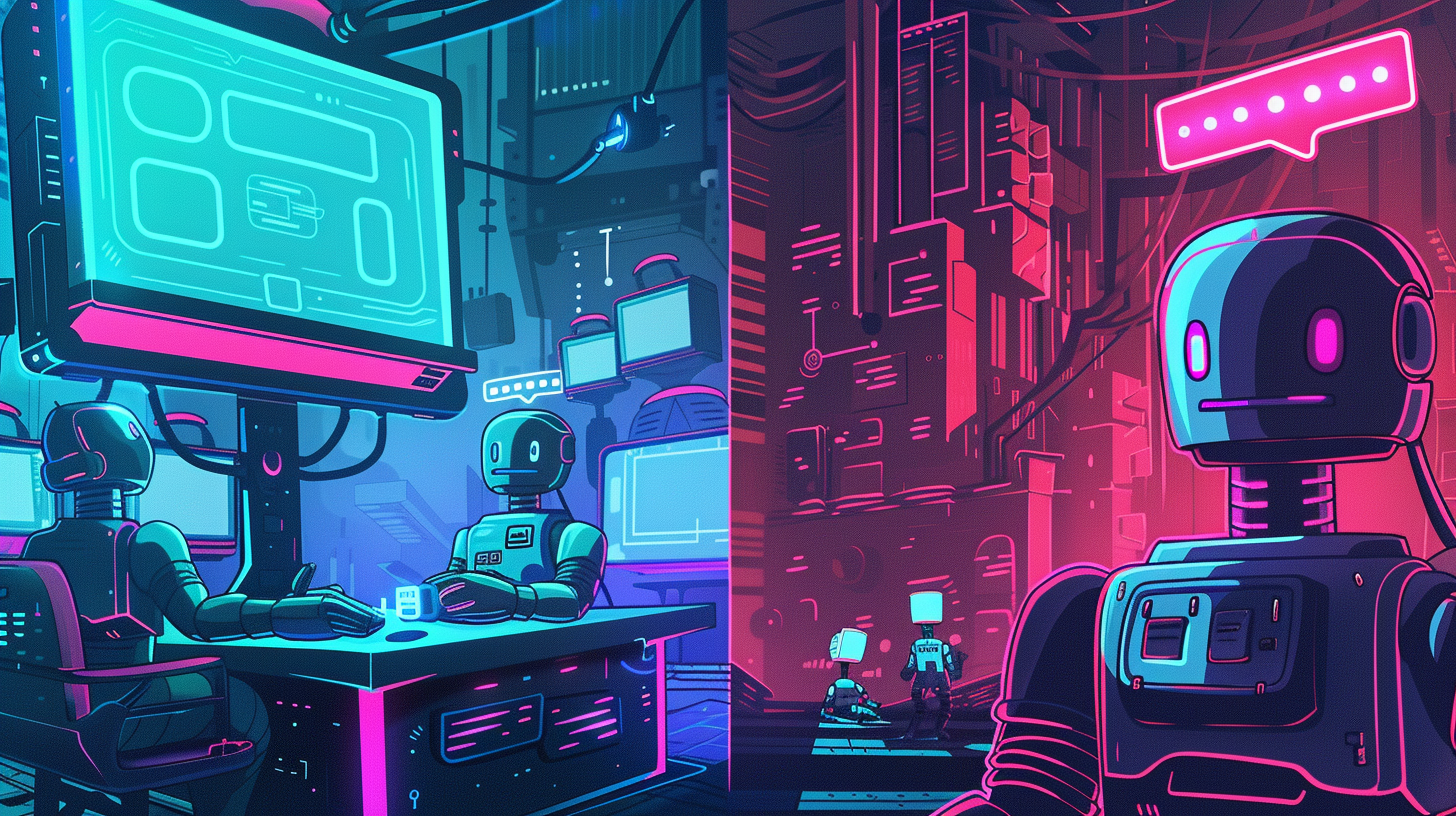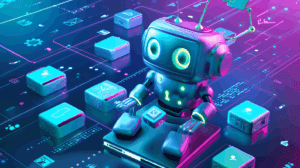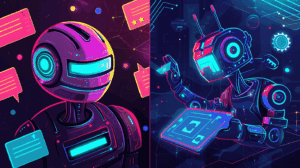Introduction to AI Agents
AI agents are sophisticated software systems designed to perform tasks autonomously, mimicking human decision-making to enhance efficiency across industries. Understanding how to select the tasks an AI agent can perform is crucial for maximizing their benefits. They leverage advanced algorithms, machine learning, and natural language processing to automate processes that traditionally required human oversight. As a result, AI agents are transforming sectors such as healthcare, finance, and customer service by streamlining workflows and improving accuracy. For more insights on how AI can improve productivity and decision-making, explore our article on what AI agents can do today.
Identifying Routine vs. Complex Tasks
Routine tasks are often characterized by their repetitive nature and low complexity, making them prime candidates for automation. Activities like data entry, invoice processing, and social media scheduling typically require minimal human intervention and can be easily defined by a set of rules. AI can handle low-stakes legal matters, such as filing business formations or drafting simple contracts, thereby streamlining operations in fields like law and finance [Source: Farm Progress].
Conversely, complex tasks necessitate higher levels of cognitive skill and judgment. Tasks involving nuanced decision-making, such as strategic planning or negotiations, are less suitable for automation. For instance, cybersecurity analysts often face complex scenarios requiring human insight to assess strategic threats, highlighting that while AI can manage repetitive tasks, human expertise remains crucial for intricate challenges [Source: CSO Online].
The Role of AI in Healthcare
Artificial Intelligence (AI) is increasingly pivotal in enhancing the healthcare sector by streamlining patient intake processes and optimizing clinical workflows. One significant application includes improving electronic health record (EHR) functionalities, which allows for more efficient documentation and data retrieval, reducing the time healthcare providers spend on administrative tasks [Source: HealthTech Magazine].
Moreover, AI systems can augment diagnosis and provide decision support to help healthcare professionals make more informed treatment choices. For instance, analyzing patient data to identify patterns improves diagnostic accuracy and treatment plans [Source: MobiHealthNews]. AI’s role extends to scheduling and follow-up communications, alleviating the burden on staff and ensuring timely reminders for patients [Source: HealthTech Magazine].
Evaluating Task Suitability for AI
To evaluate task suitability for AI delegation, consider the following criteria:
- Repetitiveness: Tasks involving repetitive actions, such as data entry or scheduling, are highly suitable for AI. AI agents can automate customer support inquiries or routine clinical tasks, significantly reducing workload and enhancing efficiency [Source: Fierce Healthcare].
- Clear Parameters and Rules: Tasks with well-defined rules are ideal for AI automation, like financial reconciliation processes [Source: Mashable].
- High Volume: Tasks that require execution at scale benefit from AI, which can manage multiple interactions while maintaining accuracy [Source: Technology Decisions].
- Integration and Collaboration Potential: Tasks that can integrate into existing workflows or require traditional human oversight are good candidates for AI involvement.
- Cost-Effectiveness: Assess whether AI can perform the task more efficiently and at a lower cost compared to traditional methods.
- Complexity and Nuance: Tasks that require empathy or complex decision-making may not be suitable for current AI capabilities.
Understanding these criteria helps organizations optimize workflows and unlock greater efficiencies across various sectors here.
Real-World Success Stories
AI integration across industries is exemplified by compelling case studies. In the legal sector, AI is transforming routine tasks, enabling quick procedures like drafting simple contracts and generating wills, significantly reducing the time legal professionals spend on these tasks [Source: Farm Progress].
In cybersecurity, AI automates repetitive security tasks, allowing teams to focus on strategic threats. This enhances the overall security of organizations [Source: CSO Online]. Furthermore, Walmart uses AI tools to streamline routine tasks such as shift planning, drastically reducing planning times and improving customer interactions [Source: Walmart Corporate News].
Challenges to Consider
Organizations adopting AI agents must navigate several crucial challenges and ethical considerations. Cybersecurity is a prominent concern, as the introduction of AI agents can increase vulnerability to cyber threats. Security measures must be integrated throughout AI deployment to mitigate risks like data poisoning [Source: Technology Decisions].
Another challenge is the technological infrastructure required to support AI capabilities, which can be costly, especially for organizations lacking resources. Additionally, skepticism regarding the benefits of AI might hinder its adoption [Source: HealthTech Magazine]. Ethical concerns regarding accountability and the “human in the loop” concept must also be addressed as AI begins to operate more independently [Source: Forbes].
Conclusion and Future Perspectives
The future of AI task delegation presents a landscape where technologies will evolve significantly, altering work and human roles within organizations. As AI becomes capable of automating complex tasks, the traditional model of “human in the loop” may shift. Experts anticipate that agentic AI could restructure automation frameworks, enabling systems that innovate processes around the clock [Source: Forbes].
Moreover, as generative AI advances, organizations are expected to expand their workforce to complement these systems, highlighting the need for skills that enhance AI capabilities [Source: Business Insider]. However, new challenges in cybersecurity must be managed to ensure that AI operates within secure environments [Source: Technology Decisions].
This evolving landscape suggests a future where human creativity and emotional intelligence work alongside AI’s power, creating a collaborative ecosystem that unlocks previously unattainable value. For more insights, explore our articles on the impact of agentic AI here and how AI agents save time without taking over jobs here.
Sources
- BBN Times – Meet AgentForce: The AI-Powered Workforce Driving $50M in Savings
- Business Insider – Tech Leaders Say Generative AI Will Increase Hiring, Not Replace It
- CSO Online – CrowdStrike is Cutting Jobs in Favor of AI: Here’s Why You Shouldn’t
- Devdiscourse – Revolutionizing Workforce Efficiency with Agentic Automation
- Fierce Healthcare – Fresh $200M Raise: Commure Rolls Out AI Agents to Automate Physician Workflow
- Farm Progress – AI vs. Attorneys: Tech’s Role in Legal Matters
- HealthTech Magazine – How Can Rural Healthcare Organizations Benefit from AI?
- Mashable – 7 AI Agents Widely Used by Companies Right Now
- MobiHealthNews – Humans and AI Can Work Together to Improve Access to Care
- Technology Decisions – AI Agents: Securing the Artificial Workforce
- Walmart Corporate News – Walmart Unveils New AI-Powered Tools to Empower 1.5 Million Associates
- Forbes – The Amazing Ways AI Agents Will Transform Healthcare
- Forbes – Preventing Skynet and Safeguarding AI Relationships
“`



